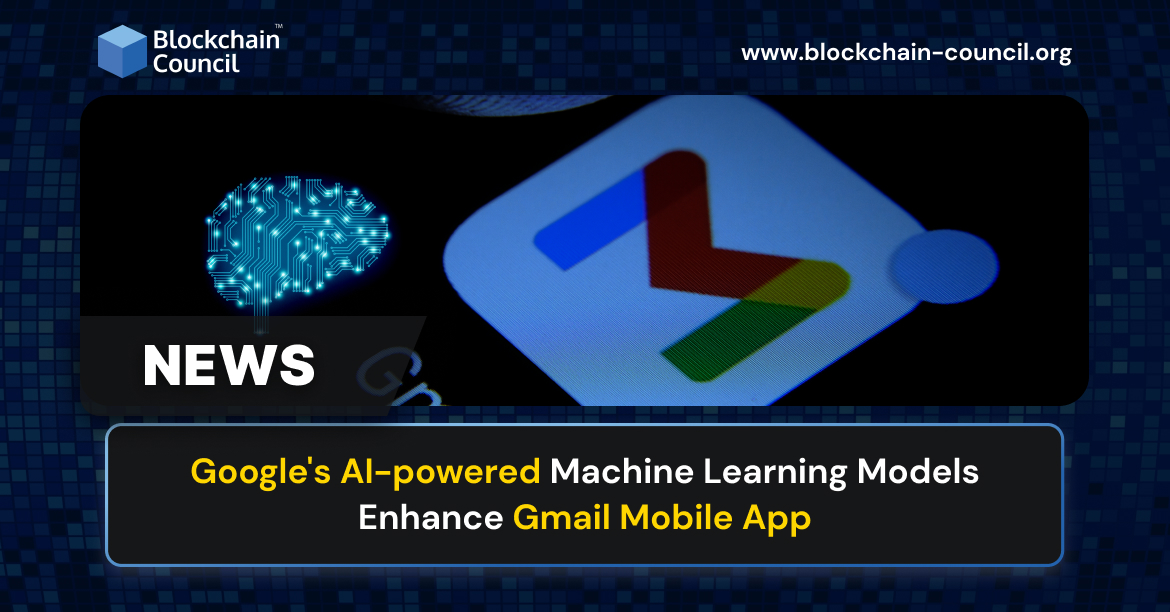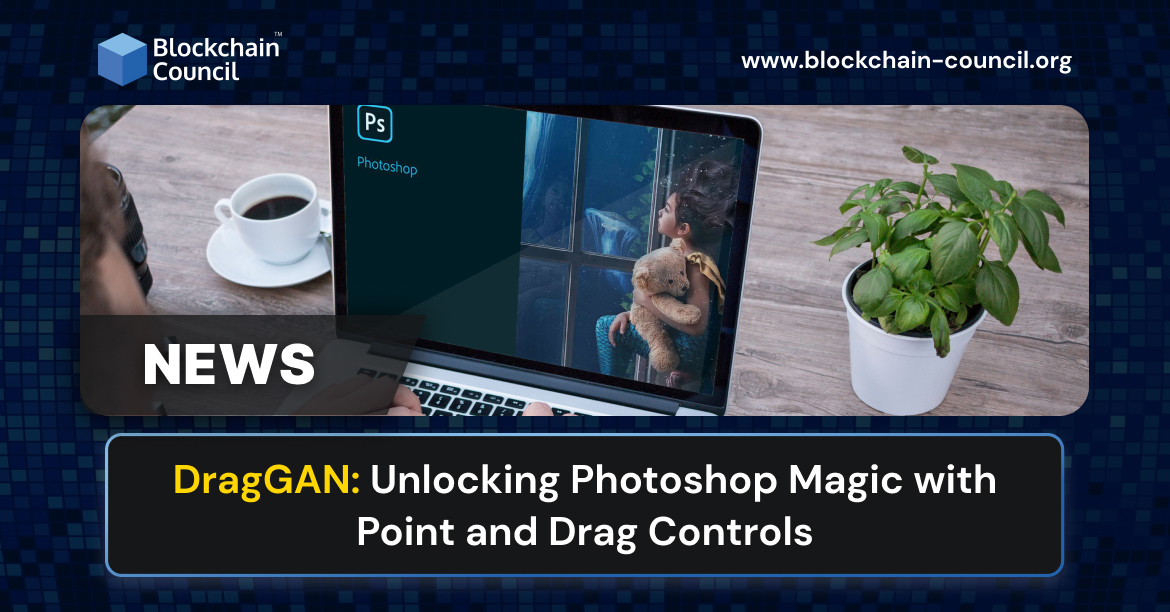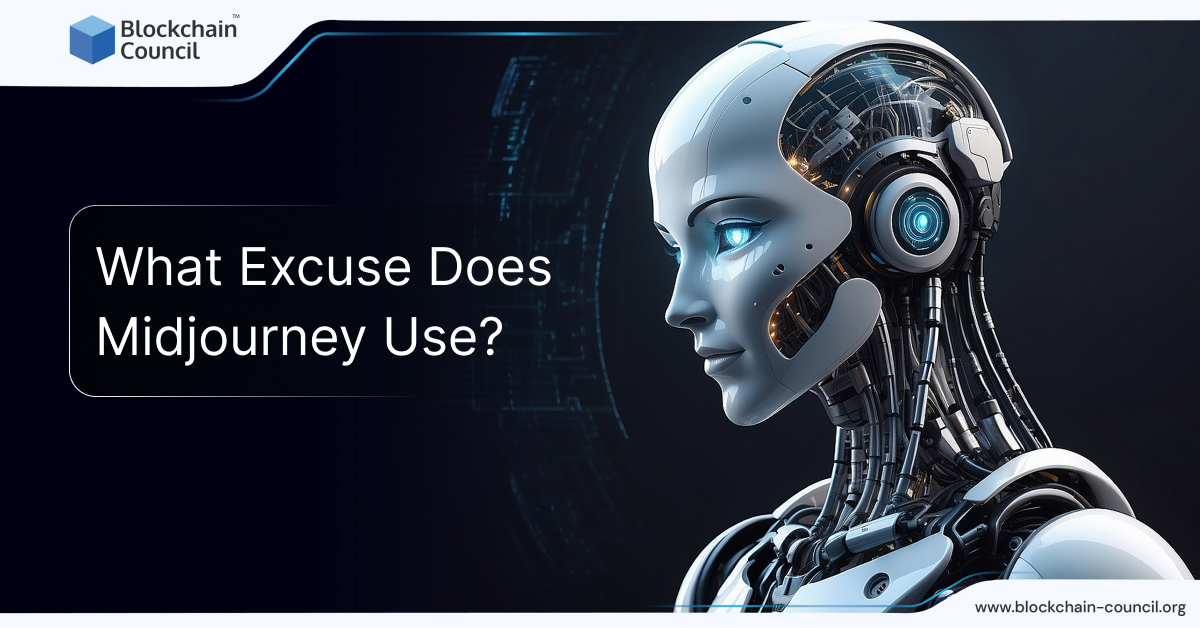
- Blockchain Council
- June 06, 2023
In today’s fast-paced digital world, email has become an indispensable communication tool, and Gmail stands at the forefront as one of the most widely used email services. With millions of users relying on Gmail as their primary email platform, Google continues to enhance the user experience by leveraging artificial intelligence (AI) and machine learning (ML) technologies. In its latest move, Google has integrated machine learning models into the Gmail mobile app to provide users with a more efficient and personalized email search experience.
Recognizing the overwhelming volume of emails that flood our inboxes on a daily basis, Google has been dedicated to finding ways to streamline the search process and enable users to locate specific emails quickly. The native Gmail mobile app has always been a preferred choice for users due to its simple and intuitive interface. Now, with the integration of AI-powered machine learning models, the app aims to revolutionize the way users search for emails while on the move.
According to a recent blog post by Google on Workspace, the machine learning models deployed in Gmail’s search feature will consider various factors, including the search term, the recency of emails, and other relevant data, to curate a list of top search results. These results will be presented at the top of the search list in a dedicated section, followed by other results sorted by recency. By prioritizing the most relevant information, Google’s machine learning models ensure that users can easily access specific emails and files, saving valuable time and effort.
To benefit from this new feature, users simply need to navigate to the Gmail search bar on their mobile devices and enter relevant keywords or terms for their search. The machine learning models will then analyze the search query and generate a list of results that best match the user’s intent. Google commenced the rollout of this feature on June 2, 2023, with availability gradually expanding to all users. If users don’t see the feature immediately, they can expect it to be available to them soon.
Also read: Google Introduces AI-Powered Image Generation Feature for Slides
Google’s endeavor to enhance the Gmail mobile app is part of its broader commitment to leveraging AI and ML technologies across its products and services. At the I/O 2023 developer conference, Google unveiled a range of AI-powered advancements, including the launch of its first foldable smartphone, the Pixel Fold, featuring the powerful Tensor G2 chip. The company also introduced the Pixel Tablet and updated its midrange A-series lineup with the Pixel 7A, all of which benefit from Google’s innovative hardware and AI integration.
In addition to hardware developments, Google introduced the Bard chatbot in India, expanding its reach to over 180 countries. Bard, powered by the PaLM 2 language model, has been upgraded with improved reasoning and coding capabilities, enabling it to solve mathematical problems and provide more insightful responses. Furthermore, Bard will now support image recognition from Google Lens, allowing users to include images in their prompts. Google also announced collaborations with Adobe Firefly to enhance its generative AI models.
Beyond consumer products, Google continues to drive AI innovation in the enterprise domain. Its Vertex AI platform empowers companies to deploy and maintain their own machine-learning models effectively. Notably, Google has incorporated the Reinforcement Learning from Human Feedback feature, enabling organizations to fine-tune their models with valuable human input. Additionally, Google introduced the Embeddings API for text and images, facilitating semantic understanding and supporting applications like search, classification, and chatbots.
Moreover, Google’s Duet AI feature aims to revolutionize collaboration within the Google Workspace suite. Integrated into Gmail, Docs, and Sheets, Duet AI provides personalized assistance in drafting responses, generating original visuals, automating data classification, and creating custom plans. With the introduction of unique backgrounds for video calls on Google Meet and public access to the Workspace Labs program, users can experience AI-driven features firsthand.
Also read: All About the Google Bard AI Chatbot
Since its launch in 2004, Gmail has transformed the way people manage their email communications. As the most widely adopted email service worldwide, Gmail handles a staggering volume of more than 330 billion emails each day. Google’s commitment to leveraging machine learning models to enhance Gmail’s search functionality is a testament to its dedication to improving user experience. By harnessing the power of AI, Gmail mobile app users can now enjoy a more targeted and efficient search process, ensuring that important emails and files are readily accessible whenever and wherever they are needed.
As Google continues to invest in AI and ML advancements, users can expect further enhancements and personalized experiences across all of Google’s products and services. With a focus on simplicity, usability, and relevance, Google strives to empower users to navigate the digital landscape seamlessly. Whether it’s through Gmail’s intelligent search features or the integration of AI in innovative hardware, Google remains at the forefront of driving transformative changes that shape the way we interact with technology and information.
Also read: Google Launches Search Generative Experience (SGE) with AI Answers Integrated into Search Results





































































 Guides
Guides News
News Blockchain
Blockchain Cryptocurrency
& Digital Assets
Cryptocurrency
& Digital Assets Web3
Web3 Metaverse & NFTs
Metaverse & NFTs
